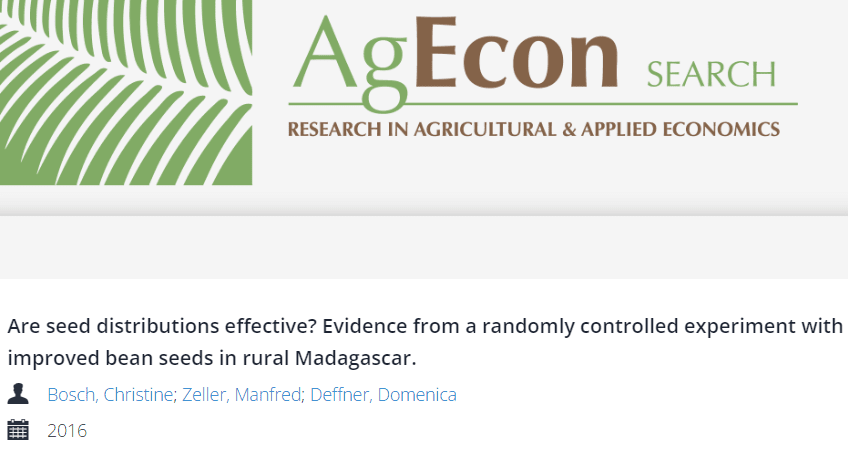Authors: Bosch, Christine; Zeller, Manfred; Deffner, Domenica
Keywords: seed distribution, Madagascar
“This paper studies access to and adoption of improved seeds and the diffusion of this information in a remote area in central Madagascar. The analysis is based on panel data gathered from 2009 to 2014 for 390 households in three villages. In 2013 a randomized treatment control design was applied in which 50% randomly selected households from the panel received 1.5 kapoaka (0.6 kg) of improved bean seeds (Pois du Cap/Morombe/Phaseolus lunatus). The beans were especially bred for dry regions and purchased at Fofifa (National Center of Applied Research and Rural Development). Of those households receiving, 50% randomly selected households were given information on how to store, plant and cultivate the seeds, as the distributed variety was unknown in the region and not available in the villages. These three groups are compared with respect to baseline characteristics, bean adoption, cultivation, information exchange with other farmers and diet diversity. 55% of the households that received seeds cultivated them, with an average yield of 3 kg. As non-compliance and spillovers exist, next to the average treatment effect on the treated (ATT), intention-to-treat (ITT) and local average treatment effect (LATE) is estimated. Additionally, willingness to pay (WTP) for improved bean seeds is estimated via the contingent valuation method (CVM). In order to ask the WTP, households were explained the benefits of improved bean seeds, which resulted in a WTP of 171% of the price of beans purchased on the local market.” […]
Click on the following link to access the content: https://ageconsearch.umn.edu/record/249286?v=pdf
© AgEcon
